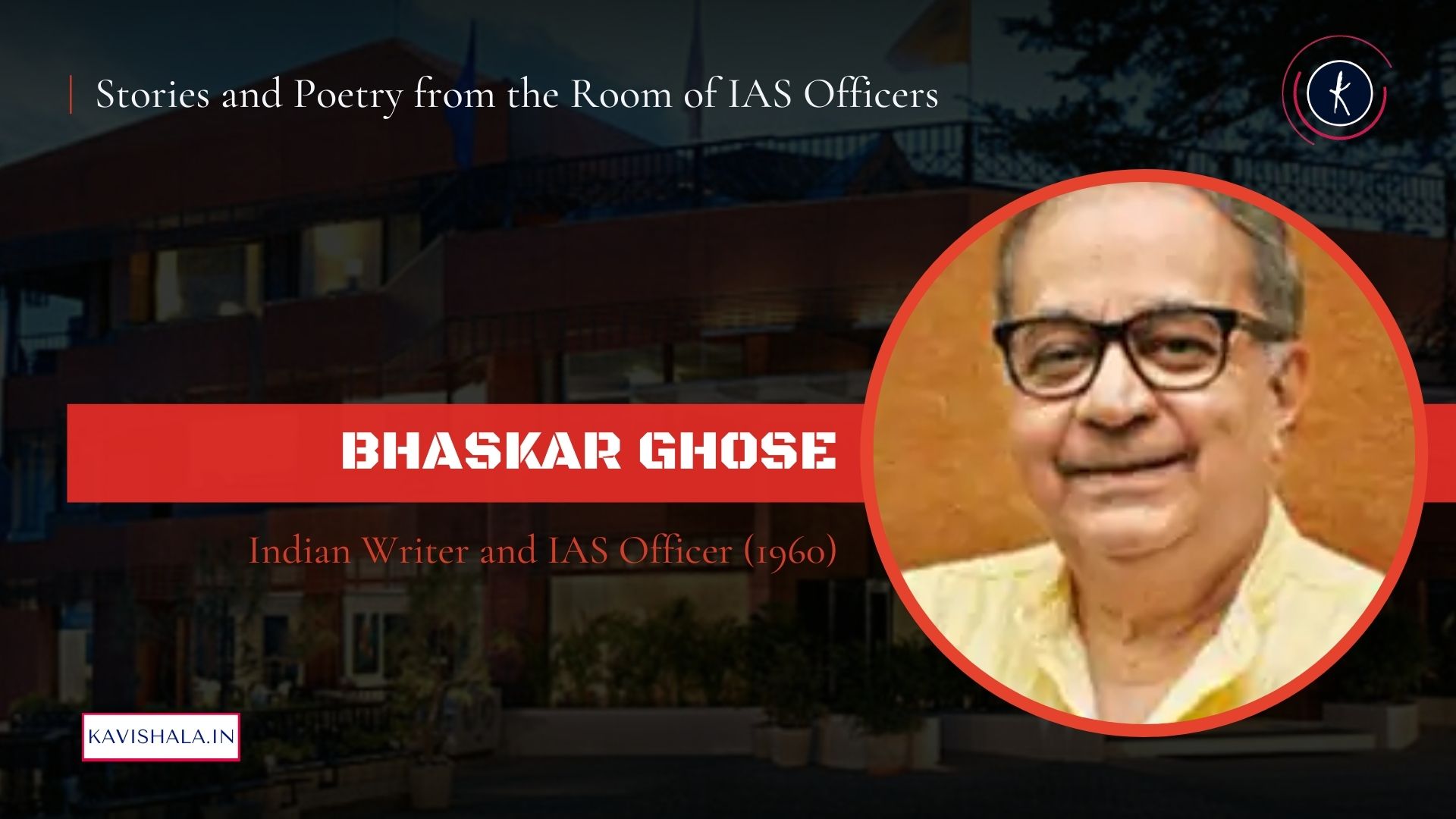
[Stories and Poetry from the Room of IAS Officers]
We know Bhaskar Ghose as that TV guy. He was the director general of Doordarshan (and his daughter and son-in-law are famous TV journalists). But he is also a book guy. And not any book guy — a proper Shakespeare walla who has read all the plays and all the sonnets. He has even read Cymbeline (who reads Cymbeline!)
We are at the retired bureaucrat’s apartment in Mayur Vihar I. The house is crowded with writers and poets (one room is filled with mystery thrillers… oh no, we’d sworn not to mention it.)
Bhaskar Ghose was educated in Mumbai and Delhi and joined the Indian Administrative Service in 1960, retiring from it after thirty-six years. He served in various capacities both in the government of West Bengal, the state to which he was assigned, and in the Government of India. He has held the posts of Director General, Doordarshan, Secretary, Department of Culture in the Ministry of Human Resource Development, and Secretary, Ministry of Information and Broadcasting. He has been a visiting fellow of Queen Elizabeth House, University of Oxford. For the last fourteen years he has been a writer and columnist, and has written regularly for a number of major Indian newspapers and journals, among them The Pioneer, Delhi, The Telegraph, Kolkata, and the Hindustan Times, Delhi. He presently writes a column for Frontline. He has been involved with theatre for the last fifty years and has acted in and directed over forty plays. His first book Doordarshan Days was published by Penguin/Viking in 2005.
Mr Ghose first read the entire Shakespeare collection during his holidays in the hill town of Nainital. He was just 17. He is now in his 70s and while Shakespeare is still a passion, the heart is too big to contain just one writer. The man professes love for a famous drawing-room novelist. “Jane (Austen) is like my devi,” he says. A house help brings us a plate of dainty sandwiches that we eat in a very non-dainty fashion. We leave Mr Ghose with his Shakespeare. Later that evening, we receive a message from him. He is unable to find his precious TS Eliot.
Quotes from Books of Bhaskar Ghose:
- “It was a truth I had to accept, a truth that underscored that I had aged - one that brought with its attendant images of loneliness and irrelevance.”
- “A poem's what you think it is,' Arunava said and laughed. He held up his empty glass and said, 'Now that is very definitely not a poem, or it's a poem, but one of infinite loss and solitude, of what could have been and is not.'
- “I mean, we live on a knife's edge, between the ordinary and whatever isn't - something terrible, something hilarious or very exciting, whatever. The difference is' - he held up a finger - 'just a fraction of a second.”
- “But why this obsession with what's actually true, the real, all that? Can't you accept that our lives are always part fiction?”
- “What happens, Tapan,' Arunava had said, 'doesn't ever go away. Something remains, because it's always part of the whole place, the environment, everything. Memories are not just internal to us.”
- “Something about these circuit houses,' he said. "They always seem to suggest the supernatural. Perhaps because they belong to another age and have just been left behind, almost by accident. They suggest hosts of staff, scurrying about, sahibs taking their ease, sola topis hanging from those hatstands over there, whisky and soda, steaming dishes of mutton and chicken on that large table - and look at the place now. Empty, deserted. As I said, left behind.”
- “I had no idea that my world was about to change because of her. Thus it is that major, climactic moments come and pass unobtrusively.”
Books:
- Doordarshan Days: Plucked from the rainy slopes of North Bengal, Bhaskar Ghose, an IAS officer and veteran field administrator, is brought to Delhi at the express request of Prime Minister Rajiv Gandhi. H
